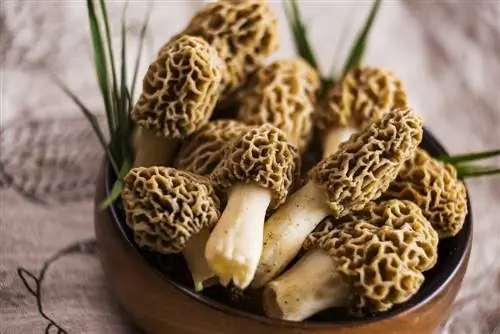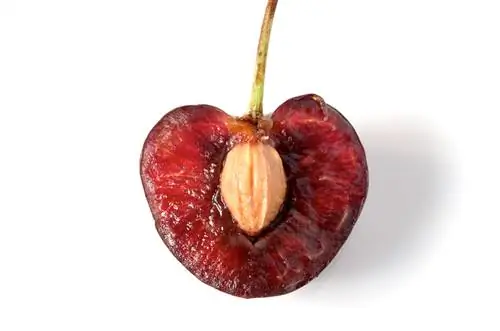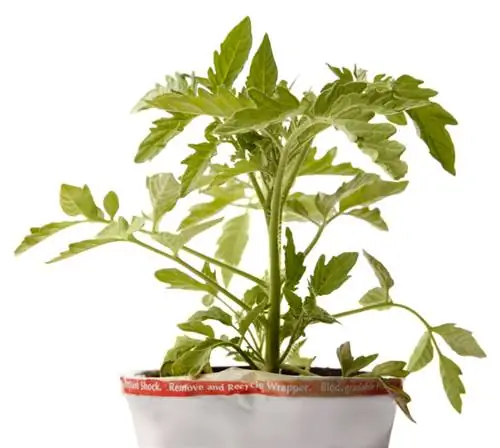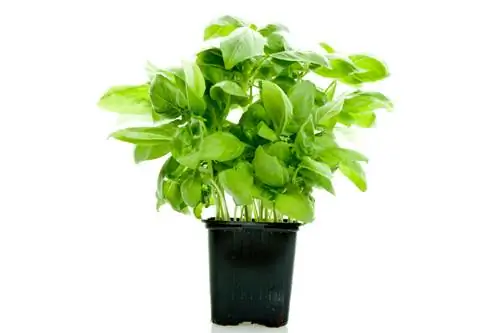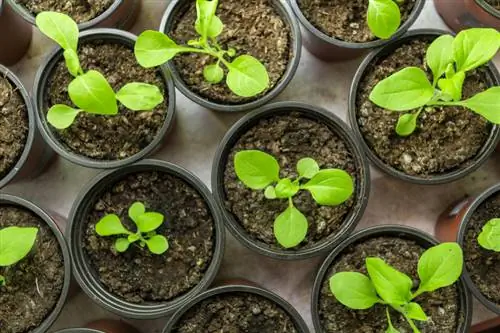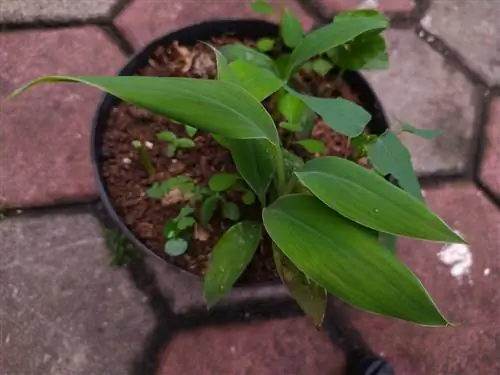- Author admin leonars@hobbygardeners.com.
- Public 2023-12-16 16:46.
- Last modified 2025-01-23 11:21.
Unlike many other edible mushrooms, you don't look for the sought-after morel in autumn, but in early spring: from March / April you can go looking for it in stream and river meadows. The more common pointed morel, on the other hand, can sometimes even be found in the bark mulch of front gardens.
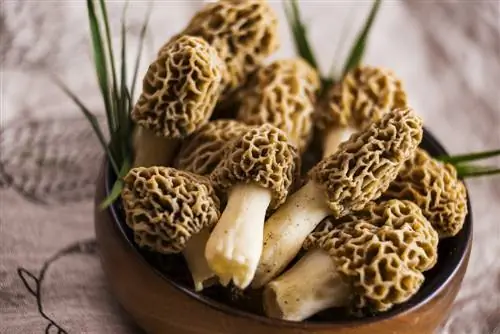
Can you grow your own morels?
Successful breeding of morels is difficult and cannot be guaranteed, as they require a precisely suitable environment, a suitable location and the right weather. However, instead of morels, you can grow simpler types of mushrooms such as button mushrooms, shiitake or oyster mushrooms at home.
Breeding success cannot be guaranteed
Many people have already tried their hand at breeding the valuable morel. In fact, there have already been successes and you can buy the corresponding breeding material (€5.00 on Amazon). However, for morel cultivation to be successful, you not only need a perfectly suitable environment and a suitable location, the weather also has to cooperate. Furthermore, your botanical knowledge is required, without which a later harvest will not be possible. A further complication is that the morels often do not appear where they were brought in: instead of in the mushroom patch, the neighbor many hundred meters away may be happy about a bountiful morel harvest.
You can grow these edible mushrooms yourself
The table shows you some types of mushrooms that can be grown at home relatively easily and without much effort. Some mushrooms come ready-made with the required substrate, while for others you have to inoculate the freshly cut logs yourself.
| Mushroom type | Latin name | Available cultures | Substrate | Interesting facts |
|---|---|---|---|---|
| cultivated mushroom | Agaricus bisporus | Finished culture (including substrate) | Straw | various varieties available |
| Shiitake | Lentinula edodes | Vaccination dowels, grain spawn, ready-made culture | Oak, red and hornbeam, alder, birch, cherry, chestnut | he althy medicinal mushroom from Asia |
| Oyster mushroom, oyster mushroom | Pleurotus ostreatus | Vaccination dowels, grain spawn, ready-made culture | Willow, alder, poplar, fruit trees, birch, ash, copper beech | native winter mushroom |
| Lime mushroom | Pleurotus cornucopiae | Vaccination dowels, grain spawn, ready-made culture | Maple, willow, poplar, alder, ash, copper beech | occurs naturally in floodplain forests and along rivers |
| Herb mushroom | Pleurotus eryngii | Grain spawn, ready culture | Straw | native to southern Europe |
| Brown Cap | Stropharia rugosoannulata | Grain spawn, ready culture | Straw | do not confuse with the chestnut boletus! |
| Japanese stick sponge | Pholiota nameko | Vaccination dowels, grain spawn | Fruit trees, willow, poplar, birch, oak, copper beech | Relative of the native stick sponge |
| Chinese morel, Mu-Err | Auricularia auricula-judae | Grain spawn, ready culture | elderwood | indispensable in Asian cuisine |
Tip
If you find morels in the bark mulch of your front garden, you shouldn't be too happy too early: usually no such mushrooms appear the following year because all the nutrients have probably been used up.

